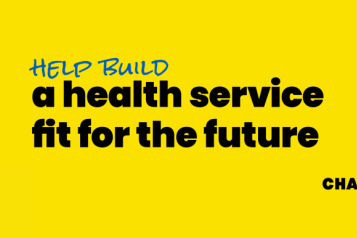Delays to NHS care: Understanding the impact

About
Healthwatch England's new research reveals that more than two-thirds of individuals whose NHS care has been cancelled or postponed in 2023 have experienced significant impacts on their lives or symptoms.
The survey has also found that many people have experienced delays to planned care two or more times and that many often find out with little or no notice.
Healthwatch England research shows that those more likely to experience multiple delays are the same individuals who are most likely to face health inequalities. These include disabled people, neurodivergent people, lower-income people, and ethnic minorities.
Specific communities were also more likely to report negative impacts on their lives because their care had been delayed. These include unpaid carers, people with low incomes, and individuals from minority ethnic backgrounds.
When Healthwatch England launched the research, the NHS had already rescheduled more than 648,000 operations or appointments since mid-December 2022 due to industrial action taken by staff in their pay dispute with the government.
What Healthwatch England found
After surveying NHS users, Healthwatch England found that 25% said they had experienced a delay or cancellation in their care in 2023. As a result, Healthwatch England decided to look more closely experiences of those whose care has been disrupted.
Further research with 1,084 people who had had care cancelled this year revealed a significant impact on people’s lives and the inequalities regarding who is most affected.
Multiple cancellations, often with little notice
- 39% of the 1,084 people had their care postponed or cancelled on two or more occasions.
- Certain groups were more likely to report that their care had been cancelled multiple times. These included disabled people, 52%; neurodivergent people, 51%; and people on lower incomes, ethnic minorities and LGBTQ+ being affected the most, 49% respectively.
- 18% of people had their care cancelled or postponed at the last minute, which the NHS defines as on the day or on arrival to the appointment.
- 45% experienced a cancellation with between one and seven days' notice.
Left to deal with the impact
- 66% of people said that cancellations to care had impacted their lives. Issues reported included ongoing pain, worsening mental health, worsening symptoms, and disrupted sleep.
- Certain groups were more likely to report negative impacts of cancelled care. These included unpaid carers, 84%, and neurodivergent people, 83%; followed by people on low incomes, 80%; and those from minority ethnic backgrounds, 75%.
- Nearly one-quarter, 24%, had not been given a new appointment or procedure date. Of this group, 82% said the NHS hadn’t informed them when they would likely be told this date.
Lack of support
- Over three-quarters (79%) of people said they had been offered ‘very little’ or ‘no support’ by the NHS to manage mental health needs during the new wait for care.
- More than half of people (52%) said they hadn’t been offered support to manage their medical condition during the new wait for care, 24% had had ‘a lot’ or ‘some’ and 21% said ‘a little’.
Reasons for cancelled care
- 15% of the 1,084 people surveyed said the NHS told them their cancellation or postponement was due to strikes.
- 24% believed strike action was the reason, though NHS services had not told them this.
- 41% said their care was cancelled for another reason, and 20% didn’t know why.
Healthwatch England is calling for the NHS to:
- Collect and publish official data on cancellations to understand what is driving non-clinical, clinical or patient-led reasons for delays;
- Use this data to reduce the high number of last-minute cancellations;
- Offer more significant support to those most affected by new delays, especially with mental health needs; and
- Improve administrative processes and communications to close the gap for those who are left in limbo with no new date.
Healthwatch England are also renewing their calls for all parties in the NHS pay dispute to get back around the table and reach a resolution to mitigate the impact of strikes on cancellations or postponements.
However, industrial action is only one element of pressure on the health service – the impact of the pandemic, staff burnout, and inefficient practices will also need to be addressed in the long term to ease the significant impact that postponed or cancelled care has on NHS patients.
Downloads
Download Healthwatch England's analysis of polling looking at the impact of care disruptions on patients.

